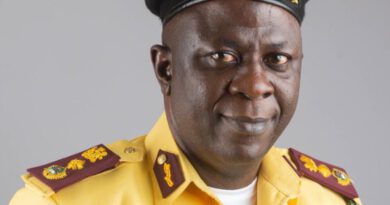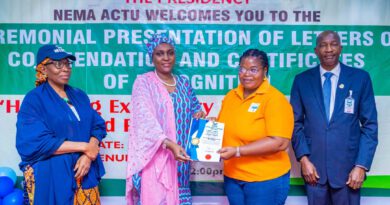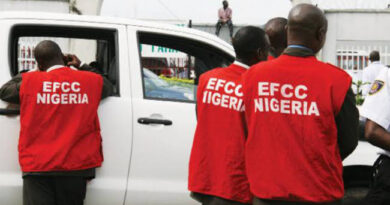Democracy Day 2025: NASFAT President Urges Nigerian Leaders to “Let the Poor Breathe”
As Nigerians across the country marked Democracy Day 2025, the President of the Nasrul-Lahi-il Fathi Society of Nigeria (NASFAT), Dr. Ayodeji Abdulwahid Abdulrauf, FCS, issued a powerful statement calling on the nation’s political, religious, union, and public service leaders to embrace responsible governance and allow the masses to benefit from democracy.
In a message titled “Let the Poor Breathe: A Call for Democratic Renewal and Responsible Leadership,” Dr. Abdulrauf described democracy as one of humanity’s boldest experiments — and one that must be fought for, nurtured, and continually renewed through policies that truly serve the people.
“We must ask ourselves: Are we making democracy better, or allowing it to wither? Nigeria is blessed with both human and natural resources, yet millions of citizens remain trapped in poverty while public officials live extravagantly. This is a betrayal of democratic ideals,” the NASFAT president stated.
Dr. Abdulrauf noted that over 26 years into Nigeria’s democratic journey, the country still grapples with poor leadership, weak institutions, impunity, and widespread disinformation, all of which threaten the fabric of the nation’s democracy.
He emphasized the need for a change in orientation — not just among leaders, but also among citizens. According to him, social media and technology platforms must be held accountable for their role in spreading disinformation and polarizing society, while civic and religious institutions must adapt to foster unity, dialogue, and participatory governance.
“We must rebuild the institutions that bring people together — from trade groups to religious associations — and create platforms that allow for meaningful debate and shared decision-making. Democracy must work from the grassroots up,” he said.
Dr. Abdulrauf also called for a total overhaul of civic education in Nigerian schools, suggesting a hands-on approach that teaches the values of citizenship, empathy, and active participation from a young age.
Citing the Qur’anic principle of mutual consultation (Shura), he reminded Muslim leaders that Islam fundamentally supports democracy, stating that rulers must be elected, laws must be formulated through consensus, and citizens must be free to express their opinions.
“There is no room for dictatorship or imperialism in Islam,” he emphasized. “A Muslim ruler must be accountable to the people. Likewise, Nigeria’s electoral institutions must uphold transparency, integrity, and fairness.”
Using Singapore’s Lee Kuan Yew as an example, Dr. Abdulrauf stressed that Nigeria’s problem isn’t democracy itself but rather poor leadership, corruption, and a lack of accountability.
“Lee Kuan Yew wasn’t a military ruler. He succeeded because of discipline, vision, and strong institutions. Nigeria needs the same — not strongmen, but strong systems,” he said.
The NASFAT president further charged the National Orientation Agency (NOA) to take the lead in rebuilding national values by promoting empathy, discipline, unity, and shared responsibility. He called for a return to indigenous Nigerian values, with a renewed focus on hard work, integrity, and redefining what success means for young people.
“No foreign country will develop Nigeria for us. The greatness of this nation lies not in what we hope others will do for us, but in what we are willing to do for ourselves,” he said.
In his closing remarks, Dr. Abdulrauf congratulated Nigerians on the occasion of Democracy Day and commended NASFAT members for their continued commitment to positive change across the globe.
“Enough is enough. Let the poor breathe. Let democracy reign for the public good. Long live the Federal Republic of Nigeria. Long live NASFAT – a pacesetting faith-based organization changing Nigeria’s narrative for good,” he concluded.




